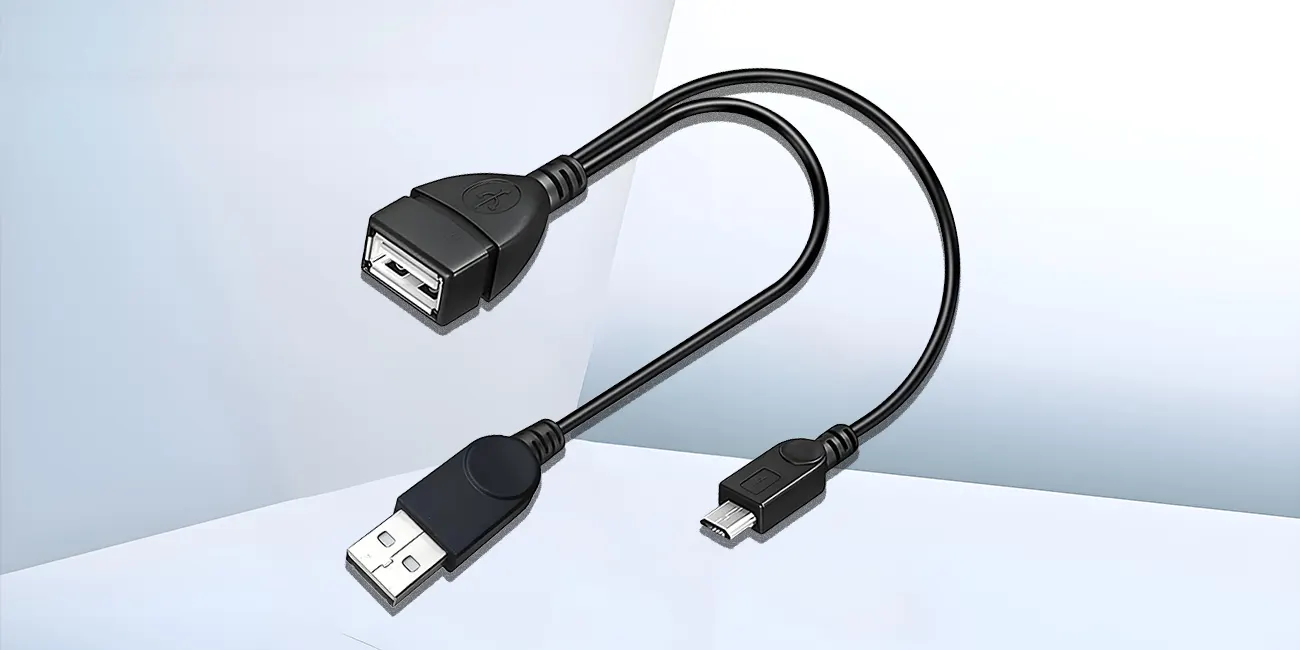
By quanyu lee
2025-08-22 01:50:26
USB Splitter Cable Guide: Features, types, and customization
In our daily lives and work, we often encounter situations where USB ports are insufficient: our computer only has one USB port, but we need to connect a mouse, keyboard, and even charge our phone simultaneously. This is where a USB splitter cable comes in handy. As a compact and convenient expansion cable, it helps us utilize limited ports more efficiently. This article will provide a comprehensive understanding of the definition, functions, classification, differences between USB splitter cables and USB hubs, common problems, and customization services, helping you choose and use them more effectively.
1. What is a USB splitter cable?
A USB Splitter Cable is a cable that splits a single USB port into multiple USB ports. It can expand a single USB port on a computer or power adapter into two or more ports, allowing users to connect multiple devices simultaneously.
2. The function of the USB splitter cable
The main functions of a USB Splitter Cable are to expand port capabilities and share power. Common uses include:
- Split a laptop's USB port into two, allowing for simultaneous connection of a keyboard and mouse.
- Simultaneously charge two mobile phones using a single-to-two cable.
- Replace bulky USB hubs in lightweight applications.
It should be noted that the power supply and transmission capabilities of the USB hub are limited to the original interface and are suitable for low-power devices.
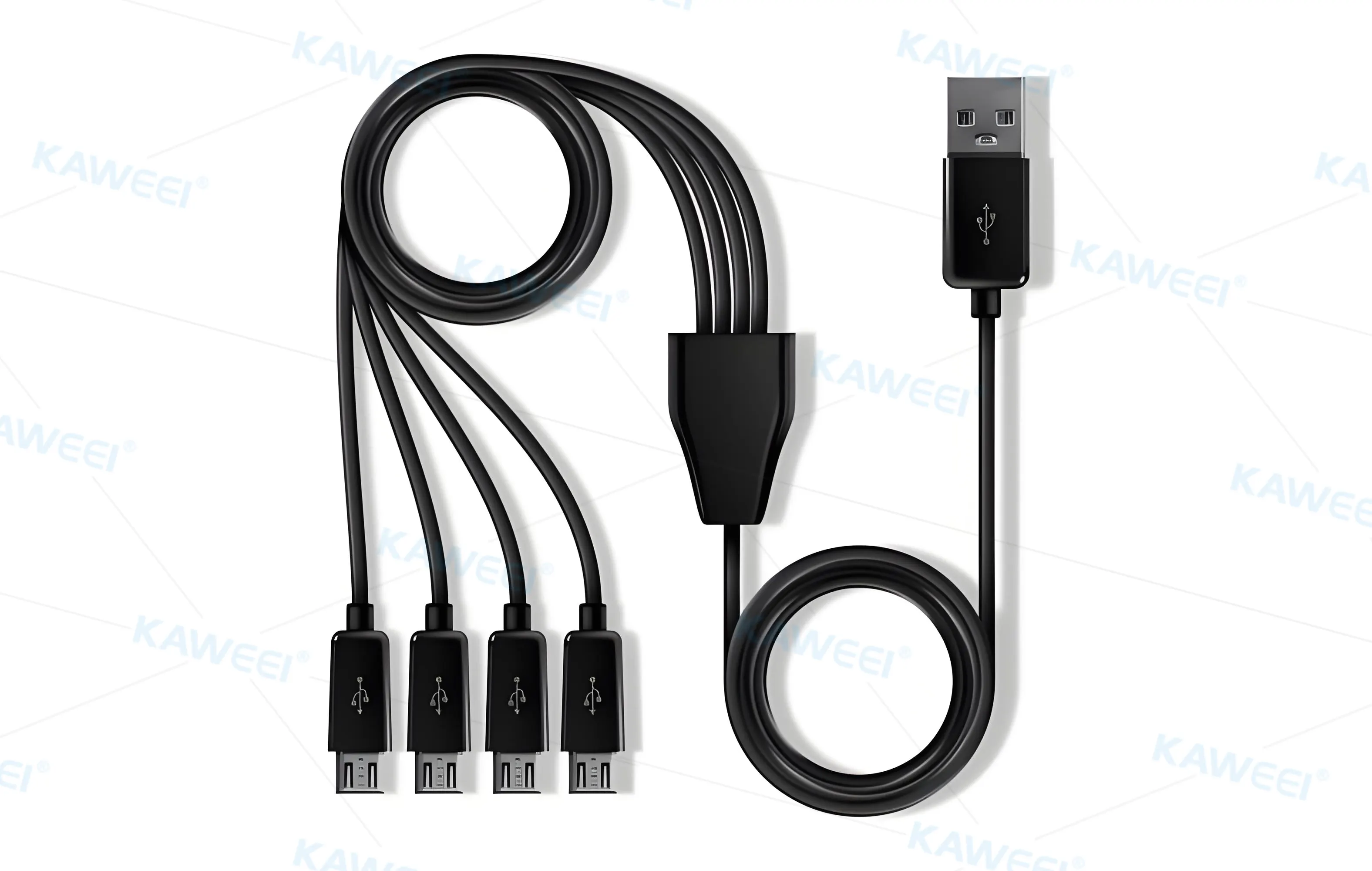
3. Classification of USB splitter cables
Common USB Splitter Cable categories are:
- Power-only cables: Primarily used for charging, such as a USB-A to dual USB-A power cable.
- Data + Power Cables: Support simultaneous data transfer and charging, such as using a mouse and keyboard simultaneously.
- OTG hubs: Used to connect a phone or tablet to peripherals such as USB flash drives and keyboards.
- Special interface cables: For example, USB-C to dual USB-A or USB-C hubs.
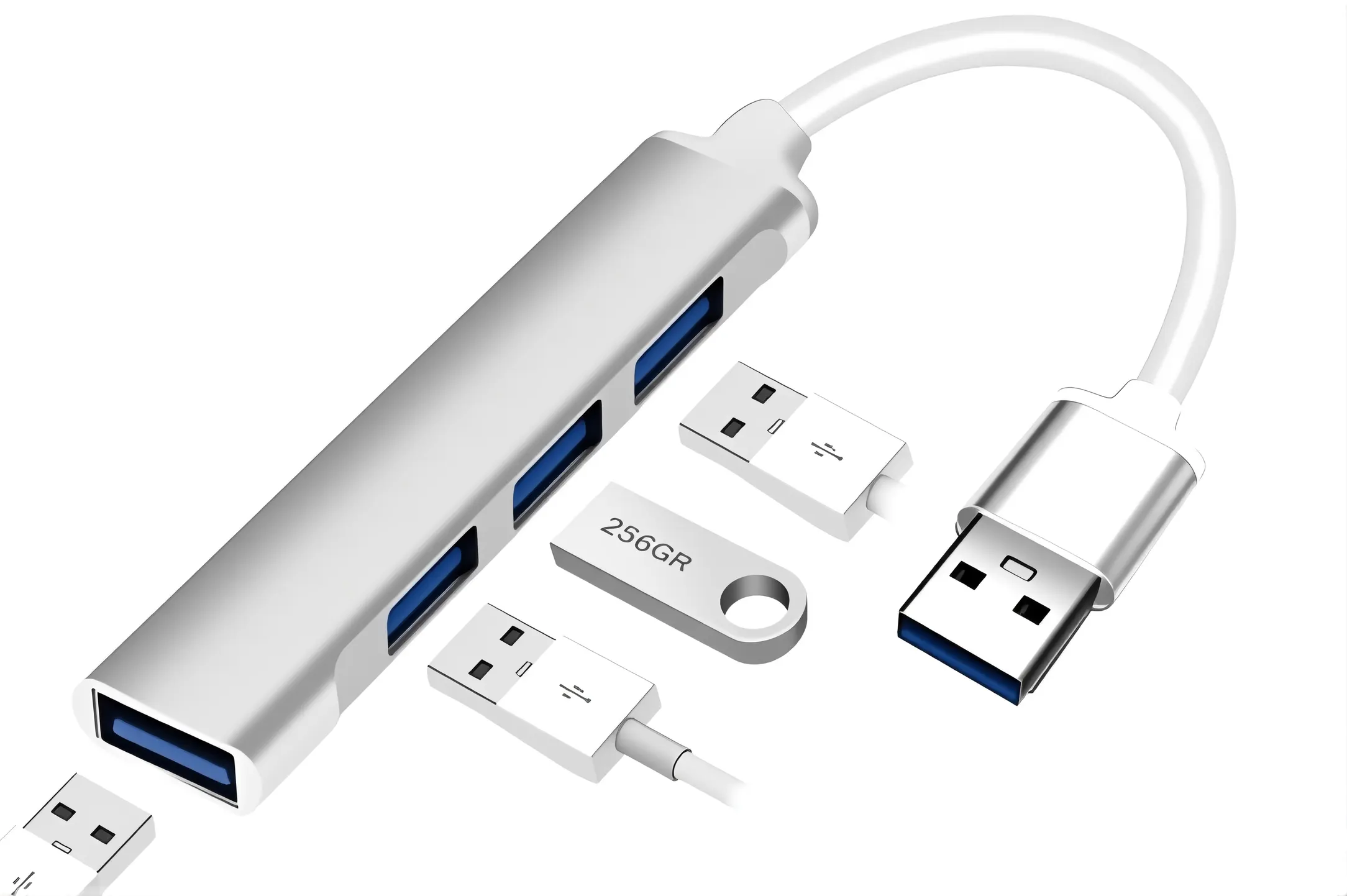
4. Comparison between USB splitters and hubs
Many people tend to confuse a USB Splitter Cable with a USB Hub. Here is a comparison table:
| Comparative item | USB Splitter Cable | USB Hub |
| Functional positioning | Simple expansion, one port is divided into two ports | Multi-port expansion can support more than 4 interfaces |
| Chip support | No chip, only physical wiring | Built-in control chip, supports data distribution |
| Power supply capacity | Shares current with the original interface, and power is limited | Can be connected to an external power supply to support high-power consumption devices |
| data transfer | Bandwidth sharing, speed drops significantly | Independent channel, more stable transmission |
| Applicable scenarios | Keyboard, mouse, low-power devices | Mobile hard disk, printer, and multiple devices are used simultaneously |
| price | cheaper | relatively expensive |
| Portability | Small size, easy to carry | Slightly larger, suitable for desktop use |
If you just want to temporarily expand the interface and use low-power devices, a USB splitter cable is more suitable; if you need to stably support multiple devices, a USB Hub is a better choice.
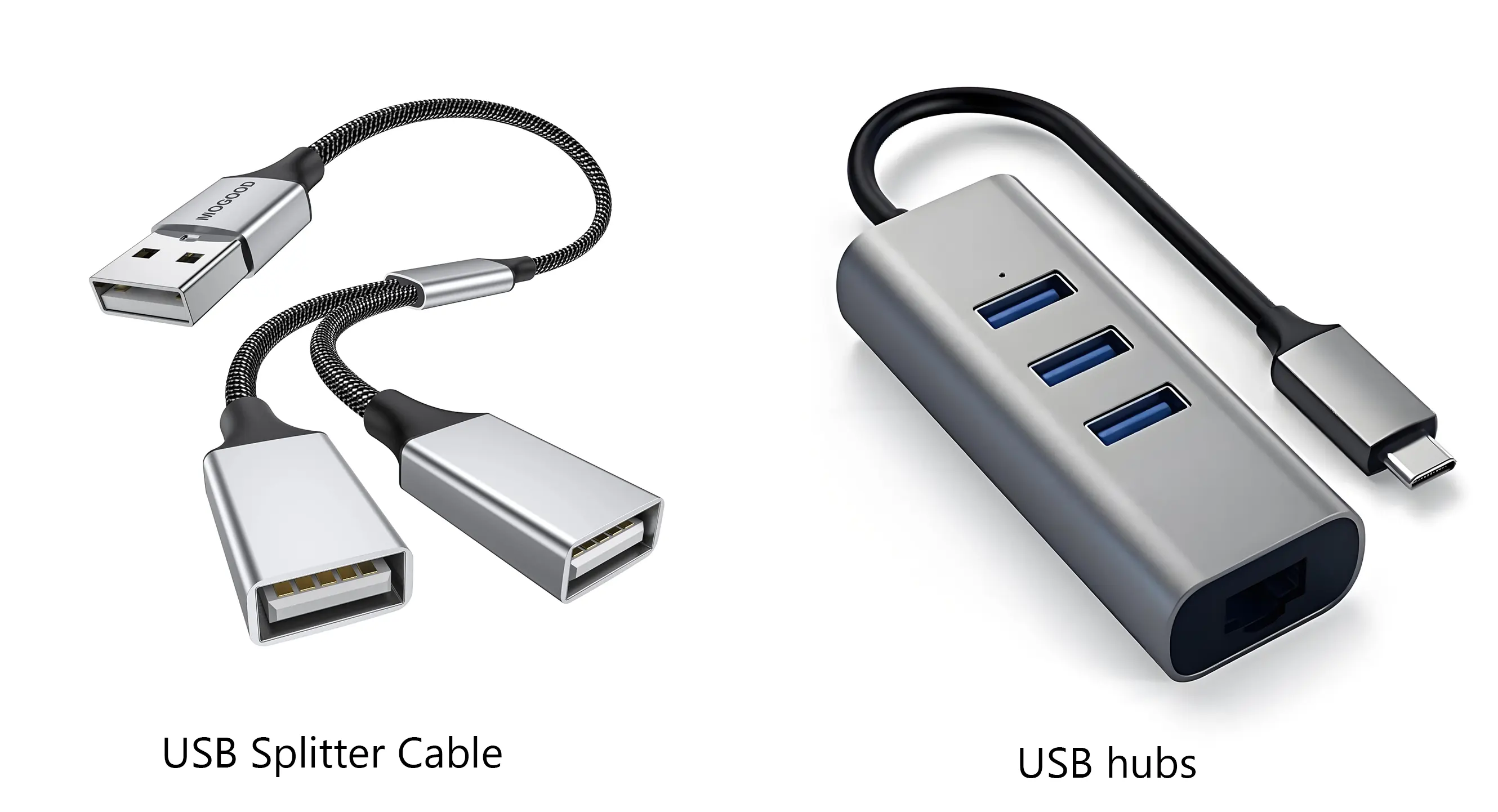
5. Can the USB splitter cable be split into two?
The answer is yes. The most common USB Splitter Cable is a one-to-two design, where a USB-A male connector is split into two USB female connectors, allowing you to connect a keyboard and mouse simultaneously. But please note:
- The current is distributed, making it unsuitable for high-power devices.
- Data transmission speeds are also reduced, making it unsuitable for high-speed transfers of large files.
6. What materials are used for USB splitter cables?
High-quality materials can enhance the lifespan and stability of a USB hub. Common materials include:
- Conductor: Pure copper (high conductivity), tinned copper (oxidation resistance), aluminum-magnesium alloy (lightweight).
- Shielding: Aluminum foil + braided mesh to reduce electromagnetic interference.
- Casing: PVC (economical and durable), TPU (flexible and fold-resistant), nylon braid (wear-resistant and stretch-resistant).
7. USB Splitter Cable FAQ
Q1: Can the USB Splitter Cable power the external hard drive?
A: Not recommended. External hard drives consume a lot of power, so a powered USB hub should be used.
Q2: Will a USB splitter cable affect transfer speeds?
A: Yes, the bandwidth will be divided, and if large files are being transferred simultaneously, the speed will decrease.
Q3: Can a USB splitter cable be used to connect two computers?
A: No. A splitter only expands the port and does not provide computer interconnection functionality.
Q4: Where can I buy a custom USB splitter cable?
A: For users with special needs, such as industrial equipment or in-vehicle systems, Kaweei, a custom wiring harness manufacturer, offers professional OEM/ODM services.
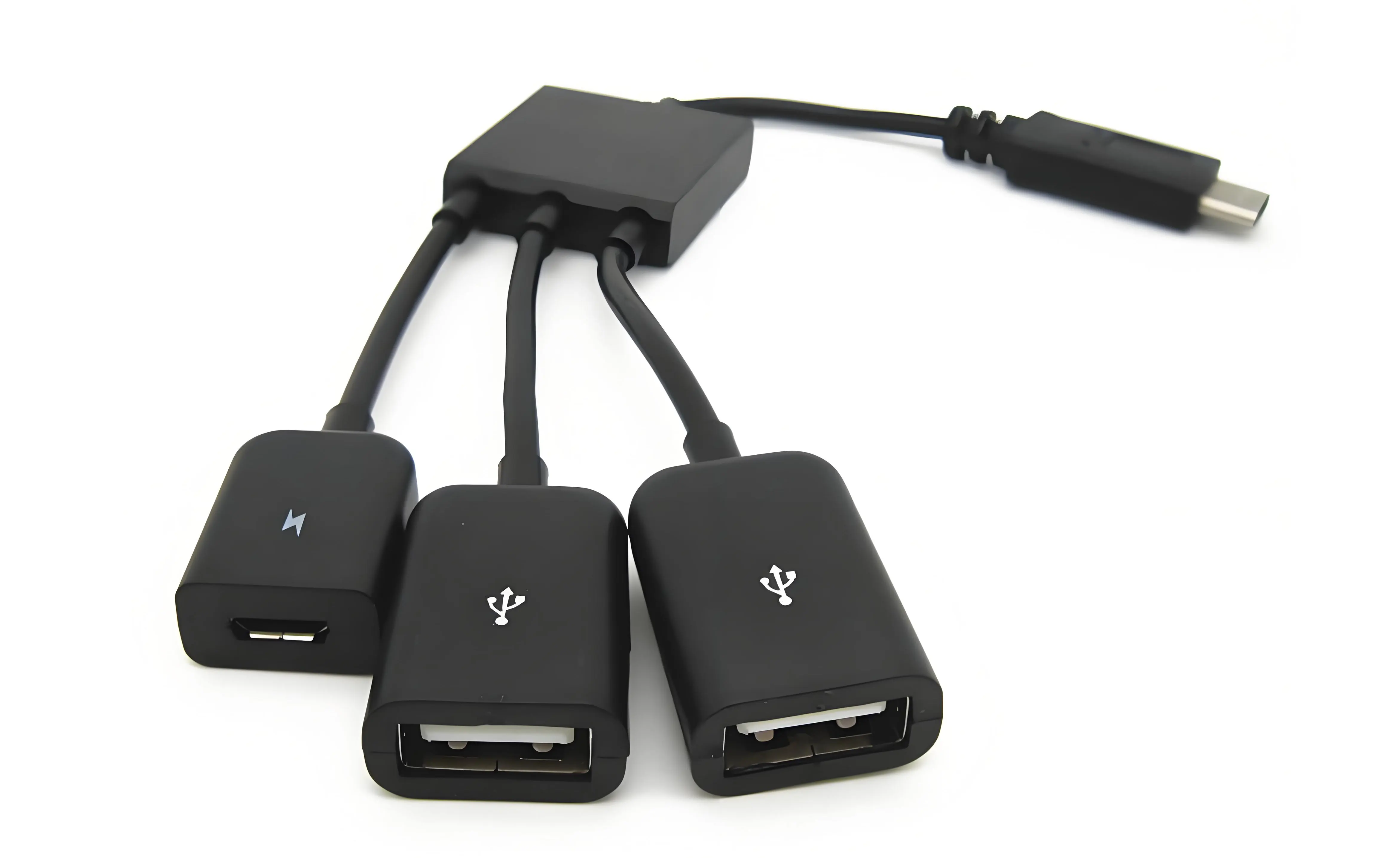
8. Selection of wiring harness customization service providers
When standard USB Splitter Cables cannot meet your needs, custom service is the best choice. Kaweei Wire Harness Customization Factory has extensive experience in customization and provides:
- Splitter designs for various interface standards
- Specialized materials and highly durable construction
- Mass production and OEM/ODM solutions available
Kaweei's custom USB splitter cables are ideal for industrial, medical, automotive, and other applications requiring high reliability and stability.
9. Conclusion
A USB splitter cable is a lightweight and practical port expansion tool suitable for connecting multiple devices in daily life. However, in scenarios requiring high power consumption or multiple interfaces, a USB hub offers advantages. For users with specialized needs, choosing a custom USB splitter cable from Kaweei Custom Harness Factory offers a more stable and reliable solution.



